Rapid research on corona finds new paths
When the world is on hold, research shifts into its highest gear. Time-consuming steps of the research project are skipped druing the COVID-19 pandemic – but ethics must never be forgotten.
Text: Ola Danielsson. First published in the magazine Medicinsk Vetenskap nr 2 2020
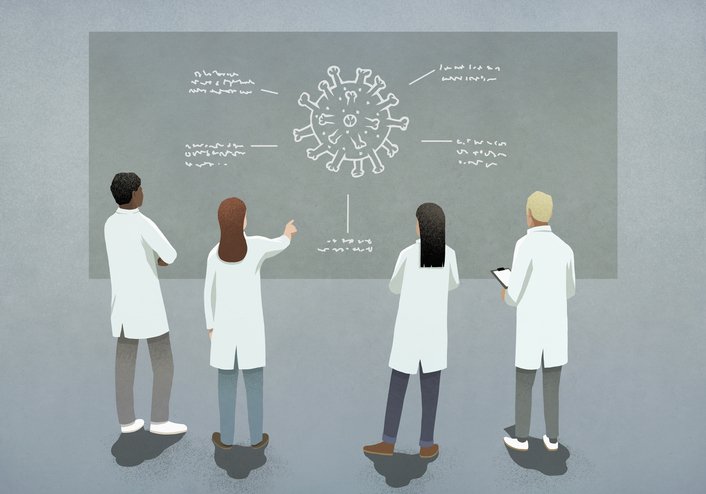
Research normally happens at a slow pace – it is usually more important for the research to be of high quality rather than moving along quickly.
But then came the corona pandemic and changed the rules. At the start of 2020, there was suddenly a global emergency that only research can solve, but the results have to be delivered at an unusually rapid rate. And so they are. Thanks to a massive amount of research activity and changed approaches, steps that would normally take years – from the discovery of a new virus to testing of vaccines and treatments – have now been taken within a few months.
One of the many researchers contributing is Hans-Gustaf Ljunggren, professor of Infectious Medicine at the Department of Medicine, Huddinge, and the founder of the Centre for Infectious Medicine, which has quickly changed its entire operational structure to assist in the research on COVID-19. According to him, the quick response from the scientific community was enabled partly by restructuring the research process.
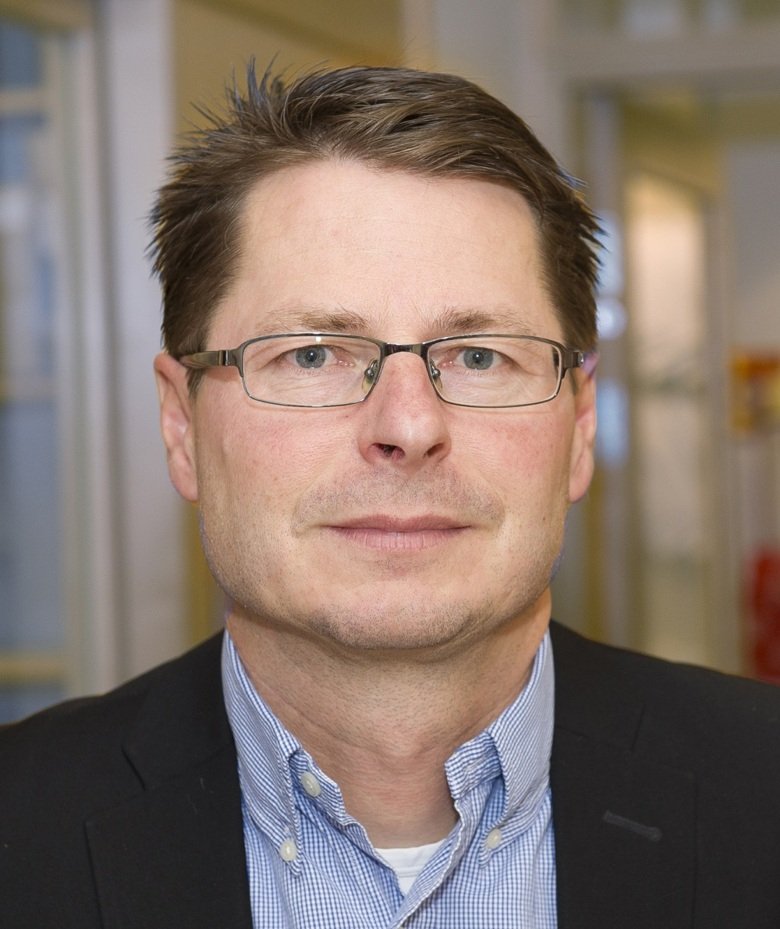
“The traditional approach, where you put together an article, send it to a scientific journal and then wait – it just will not do now,” he says.
Simply put, it is too slow.
“First, it might take a few months before the journal gets back to you after the initial assessment. Then the article must often be revised, new experiments may be required, and all these steps must then be reviewed in turn. It is not uncommon for a full year to pass before the article is published, or sometimes even longer,” says Hans-Gustaf Ljunggren.
At the same time, many scientific journals have increased their pace and introduced fast tracks for COVID-19 research. But many researchers choose an even faster route and simply publish their articles independently on so called preprint servers. This means that the articles have not undergone the customary peer review, which is considered a cornerstone of quality assurance for the research being published in scientific journals.
Preprint articles risk containing errors which would have been corrected in a peer review. There is also a risk that the research is of such a low quality that the article would not have been published at all.
But according to Hans-Gustaf Ljunggren, the benefits of making the research available quickly outweigh the drawbacks in this case. As long as the recipients are other researchers, the article will still be reviewed.
“Us researchers are used to reviewing each other’s articles. The difference is that we know that we are reading unreviewed articles. As an individual researcher, you need to start reading from that perspective, separating the good from the bad, and take it for what it is.
New ways of reviewing articles
Hans-Gustaf Ljunggren views this as a time of change, where the scientific community experiments with new approaches. “We see the research institutions starting to build their own systems for reviewing these kinds of articles, something which we have already done to some extent at the Centre for Infectious Medicine,” he says.
There are institutions taking ambitious steps in this direction, including the Immunology Institute at the Mount Sinai School of Medicine in New York. On 22 March, they announced on Twitter that they are starting a project to summarise the flow of immunological COVID-19 research published on preprint servers. The stated aim is to utilise the will within the institute, among both students and researchers, to contribute in the fight against the pandemic, as well as help guide both researchers and the public through the flow of research. Within the span of a month, the project had published 118 review articles discussing selected preprint articles.
Hans-Gustaf Ljunggren is curious to see how many of these new structures will remain in place after the pandemic. Among other things, he sees a greater degree of openness which might be here to stay.
“The situation in the world is currently too serious for us to compete. There is a great willingness among scientists throughout the world to cooperate. Even when the pandemic is over, I think we will still see data being published in databases that researchers can use freely,” he says. As early as 2016, during the Zika virus outbreak in the Americas, 30 major scientific journals and research financers announced their position that research and data should be made openly available during health crises, and that preprint publishing should be used to speed up the process. Similar positions have been taken during the COVID-19 pandemic.
Research from 2018 shows that preprint articles actually contributed to a more rapid dissemination of useful information during the Ebola epidemic of 2014 and the later Zika outbreak. They contained both new data and analyses, and in cases where the articles were later published in scientific journals, this happened around 100 days later.
But despite the benefits, less than five per cent of the articles about Ebola and Zika were published on preprint servers. A clear difference between the two outbreaks was that the number of preprint articles containing new data increased, from 7 per cent for Ebola articles to 46 per cent during the Zika outbreak.
A need for open science
Robin Fondberg, doctoral student in psychology at the Department for Clinical Neuroscience, Karolinska Institutet, is involved in the open science movement, which strives to make research more transparent and accessible. The movement started in response to the replication crisis, which refers to published research is often proving difficult to reproduce. In the largest meta-study in the field of psychology, this applied to 60 per cent of the studies.
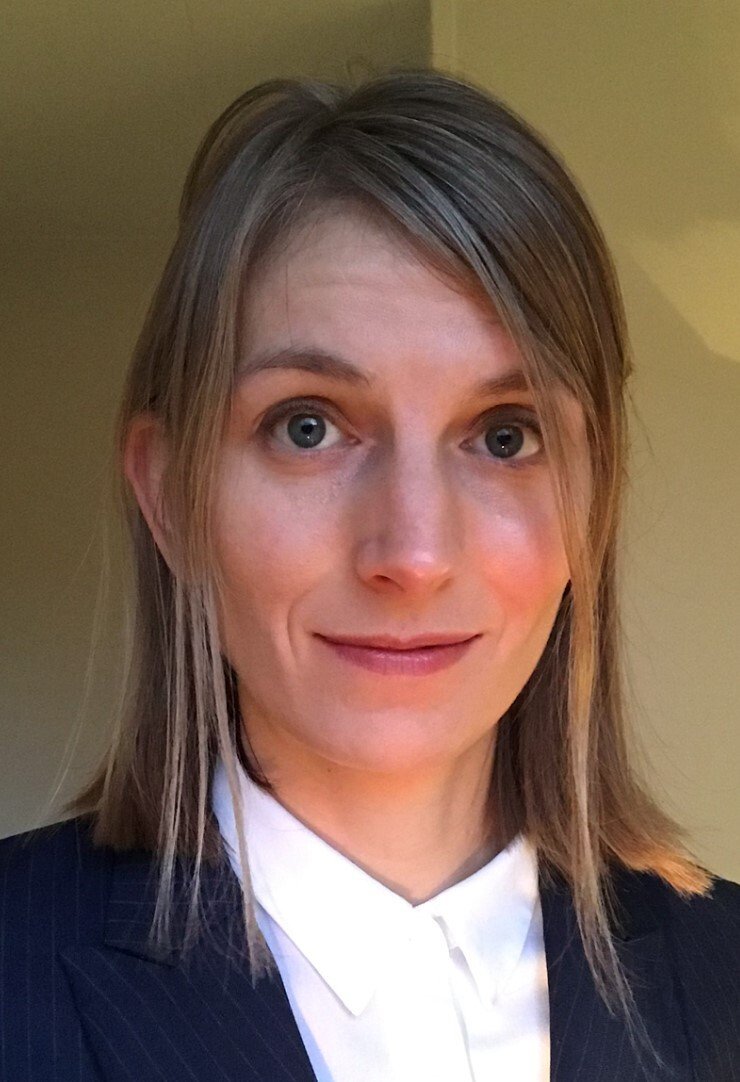
“When someone tries to repeat an experiment, it is not possible, and you get a different result. The problem was first highlighted in psychological research, but it is also widespread in the field of biomedicine,” says Robin Fondberg.
According to her, one of the prerequisites for making research replicable is that the research process is presented openly, from hypotheses to raw data to analyses. She sees positive signs in how the COVID-19 research has been presented.
“There has been a small group going on about this while most researchers have carried on as usual. There has been a lack of strong incentives to change the system. But now, when the research is a matter of life and death, I think many understand that openness and transparency are really important. The need for data to be shared openly and not hidden is greater than ever,” says Robin Fondberg.
Social media important channel
The replication crisis shows that the peer review system is no guarantee for ensuring the quality of the research. According to Robin Fondberg, peer reviews can also be done through other channels. She herself tweets actively about research and among other things, she is keeping tabs on the social media discussions about COVID-19. The significance of these quick, digital channels should not be underestimated, she says.
“Discussions on Twitter can sometimes be on a higher scientific level than peer reviews. It is a highly efficient way of reaching people who are experts in just the right field, and it speeds things up considerably,” says Robin Fondberg.
There are examples of studies that were published on preprint servers being quickly withdrawn after a critical discussion on social media, including one study that implied similarities between COVID-19 and HIV.
The unreviewed studies become more problematic when groups who do not have the opportunity to review the study read the results, which to a large extent is happening during the ongoing pandemic.
“For clinicians, journalists and the science-interested public, interpreting the information is more difficult. Uncertain results can become very widespread,” says Robin Fondberg.
Never before has research seemed so relevant, been so noticed and concerned so many people. This is why Robin Fondberg believes that we should take an even more critical approach at this point in time. According to her, incorrect research results risk becoming widespread when many people are focused on one area, making some incentives that could influence the objective search for the truth a little too strong.
“Everyone wants to be the one who helps avert the threat to public health. There are both research grants and a lot of prestige on the line. Researchers are also pretty good in general at inflating their own results. That effect is even greater now. This is not an optimal research environment if the goal is to get as close to the truth as possible,” she says.
Bar for quality might be lowered
Robin Fondberg warns that the bar for research quality and scientific evidence might be lowered during the pandemic. She used the drug hydroxychloroquine as an example, which saw clinical use against COVID-19 in the early stages of the pandemic – something which was also encouraged by American President Donald Trump. This was based on two studies which had indicated an effect, but their quality has been called into question.
“It is doubtful that these studies would have been published under normal circumstances. Normally, the drug would not have been used because the evidence was too weak,” says Robin Fondberg.
LATER STUDIES have cast doubt on the benefits of the drug as a COVID-19 treatment. On the contrary, serious side effects have been discovered in the form of cardiac arrhythmia and increased risk of dying when the drug is taken along with certain other drugs, such as the antibiotic azithromycin.
Ethics are the same as usual
Niklas Juth, associate professor of medical ethics at the Department of Learning, Informatics, Management and Ethics, sees a risk of people who participate in urgent research during the COVID-19 pandemic being exposed to unnecessary danger that may be greater than the disease itself.
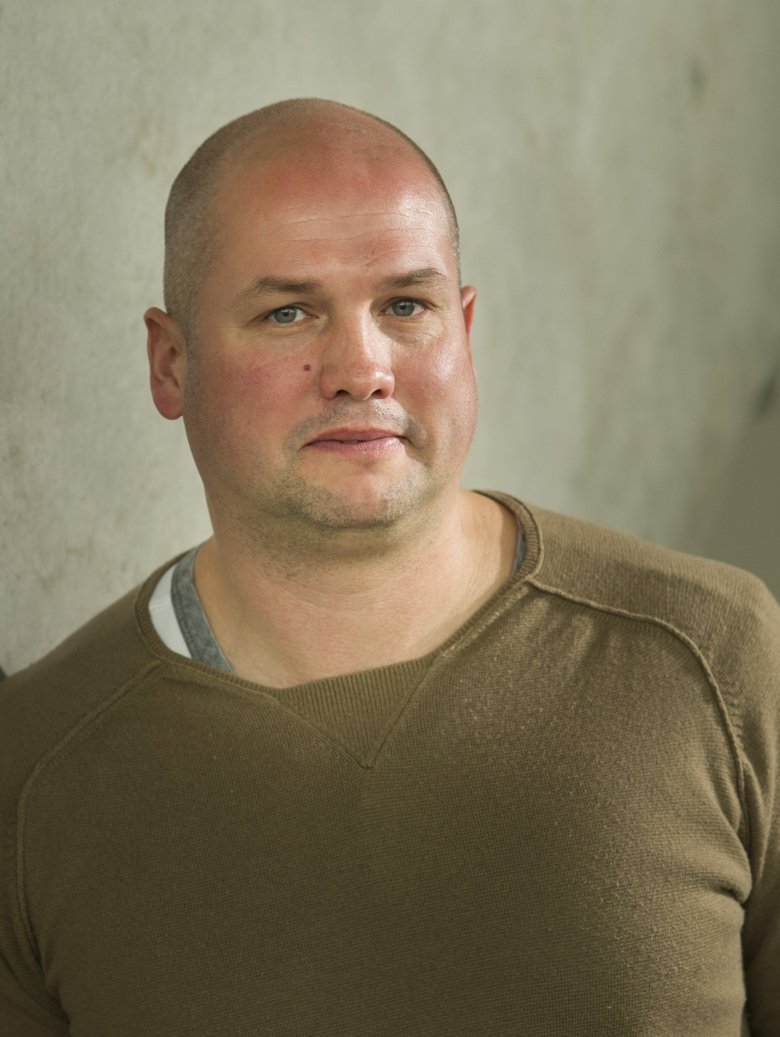
“These are extraordinary circumstances, which feel close to a state of emergency. That makes it easier for you to lose your head,” he says.
He is the convening member of the group of experts on ethical issues surrounding COVID-19 research that has been established at Karolinska Institutet. The purpose is to provide guidance through the existing regulatory frameworks and ethical principles. According to him, it is important that researchers who are eager to help quickly get additional help with ethical issues. But the ethical regulations are the same as usual and all research is subject to an ethical review.
“The solution is not to take shortcuts and act carelessly with the procedures already in place to guarantee safety. The solution is to invest more resources in research and perhaps reallocate the available research resources. If you do not use caution now, it will come back to bite you later,” says Niklas Juth.
The research ethical regulations are in place to ensure the safety of the test subjects and their right to make their own decisions regarding their involvement in the research. But what happens if the test subjects choose to subject themselves to unusual risks? In the United States, hundreds of people volunteered to be infected with COVID-19 as a way of speeding up the vaccine development.
Niklas Juth does not see this as a viable path from a research ethical perspective.
“No, there are limits to which risks you can subject yourself to and consent to. Again: those are the rules in normal times and they should also apply now. Also, there are enough people already infected who voluntarily allow researchers to conduct qualitative research, so getting infected for the sake of research is not only too great a risk, but an unnecessary one,” he says.
Text: Ola Danielsson. First published in Medicinsk Vetenskap nr 2 2020
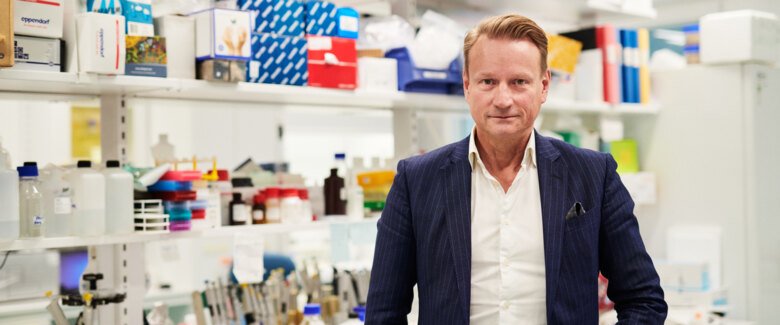 Photo: Erik Flyg
Photo: Erik FlygSearching for a coronavirus vaccine
Matti Sällberg leads a team that searches for a vaccine against the coronavirus. "Others will be quicker, and therefore we are thinking long-term and focusing on finding a vaccine that can protect against several coronaviruses, including those that may pop up in the future," he says.
